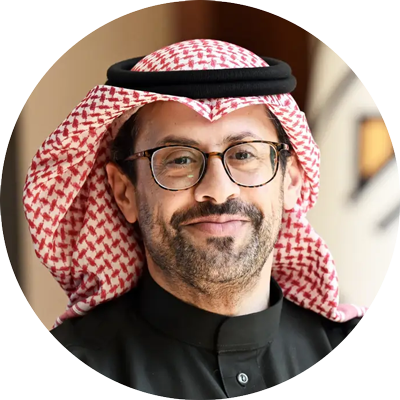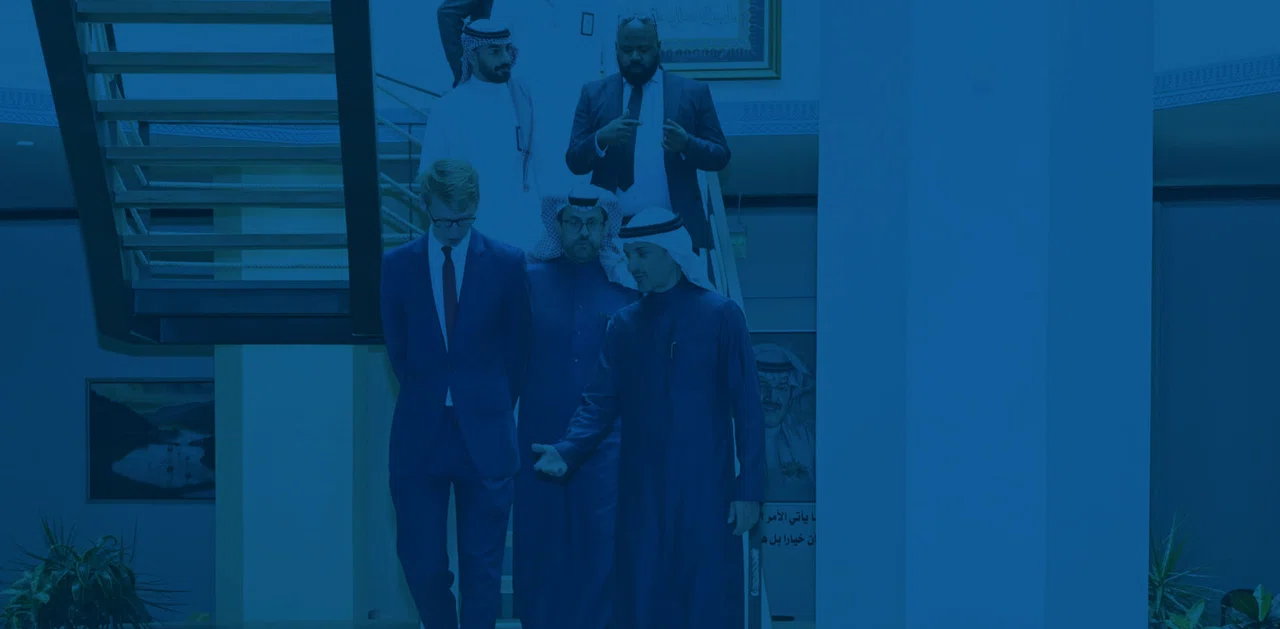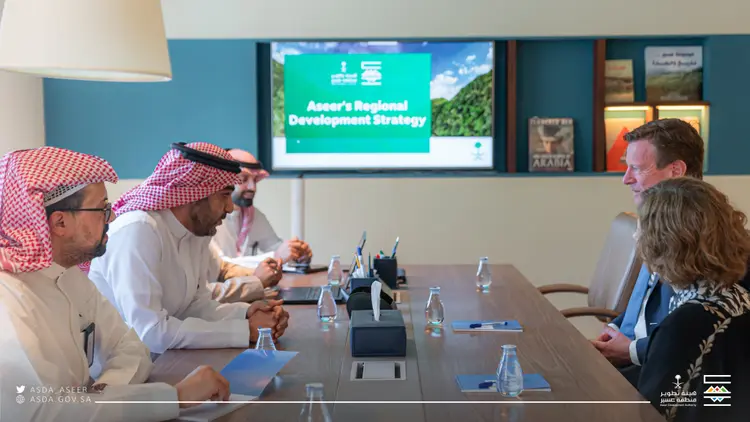



Close
result
PROFILE
Catalyst and connector for regional development
Catalyst and connector for regional development
Caroline Scotter Mainprize
5 min read


New to the title while at the same time not new to the role, and the first chief of staff in an organisation contributing to Saudi Arabia’s innovative Vision 2030 national plan, Faisal Aljohani is breaking ground in every direction. Interview by Caroline Scotter Mainprize.
Faisal began his career in quality management for a large multinational company, which meant that he started nurturing his networking and communication skills early. ‘I used to work with a range of different departments in reengineering and documenting their work procedures processes,’ he said. ‘I got to touch base with all of the core functions of the organisation and developed a broad spectrum of expertise in multiple fields. I think that’s what established me as a generalist.’
Having honed his skills through working with internal stakeholders, he then became an office manager, first to a printing complex and then to the Undersecretary of Madinah Region in Saudi Arabia. His network expanded to include regional and central government ministries, security forces, legal departments and more, as he gained increasing responsibilities working directly with the Governor and Deputy Governor in strategic planning, HR, organisational development, and, during the COVID pandemic, in crisis response.
After a spell as an executive consultant at a leading regional tertiary hospital, Faisal started to feel that he was getting a bit too ‘comfortable’, careerwise, in Madinah. He wanted a challenge, and found it in the newly established position of chief of staff in the development organisation for the region of Aseer in Saudi Arabia.
‘I found myself on Ground Zero again, and, honestly, without the extensive network I had built over the decade, it was a bit intimidating,’ he said. ‘But it was invigorating as well: I’d built up my previous job and expertise over 15 years, and now I had the opportunity to do it again – with the additional challenge of creating and defining a new role that is not so common in Saudi Arabia outside central government.’
He describes having a ‘blank slate’ as a mixed blessing. He started the job with no team, which meant that he personally got to know everyone in the organisation. The downside was that he was working ridiculously long hours and perpetually being asked to explain what his job title meant and how he could add value to the organisation. However, over time he has been able to build his own team and benefit from the reputation he built in the early days utilising these personal interactions.

Faisal is chief of staff to the CEO and works closely with him, but also with the two vice-presidents ‘to make sure that everything is aligned, and that between the three different people, nothing is falling between the cracks.’ Increasingly he is being invited to sit and lead on different committees, not only because he brings with him the reflected authority of the CEO, but also in his own right as someone with a broad grasp of the context of the organisation as a whole. ‘I see myself as a catalyst and a connector rather than an implementor, but it still requires me to be careful of my time. That’s where it is so useful that I have now formed a team. I can delegate to them and I’m left with doing what only I can do.’
What he can do is navigate complexity. The strategic vision for Aseer, which is part of the integrated plan for the whole country, focuses on developing the region as a global tourist destination, capitalising on its diverse environment and natural beauty and enhancing it with modern, cutting-edge infrastructure including many interlocking projects – from roads and an airport to water desalination and digital infrastructure – that will improve the region for visitors. But at the same time, the organisation is acutely aware of the fact that this development should not come at the expense of the citizens of the region and their needs. Other infrastructure projects include those relating to education and health, power and industry, requiring collaboration and development both locally and with central government. As chief of staff to the development organisation, it must sometimes feel as if Faisal is chief of staff to the whole region.
He credits the Chief of Staff Association with supporting him and helping him define this broad and complex range of responsibilities. ‘When I joined the executive education programme in Oxford there were about 45 people in the room, all with the same job title. But I bet my bottom dollar that not one of us had the same actual job,’ he said. ‘It was wonderful for me to be able to look into their worlds a little bit and understand what they were doing. It also helped me look forward in my career. I know that I want to take these communication and connection skills and grow – but in which direction do I want to grow?’
Mixing with other chiefs of staff has also helped him make sense of the ambiguous nature of his role and the conflicting feelings it sometimes engenders. ‘Some days I go home feeling completely happy and satisfied, knowing that I’m contributing positively to the organisation and creating value: on other days I sometime question that and myself, which in turn ensures that my role in the organisation is constantly evolving ,’ he said. ‘But that’s why the Chief of Staff Association network is so valuable. Just walking into the room during an event or executive education programme, I know there are people there who understand me. I don’t have to explain what I do or how I feel about things. They get it, and that’s the power of the professional network.’

Faisal Aljohani
Faisal Ahmad Alrefaie Aljohani is chief of staff at the Aseer Development Authority (ASDA) in Saudi Arabia. With over twenty years of experience, Faisal has a proven track record in managing and developing executive offices, overseeing complex projects with minimal resources, and leading and engaging international teams and stakeholders.
During the COVID-19 pandemic, he established and managed the Crisis Center in Madinah, demonstrating exceptional leadership during a critical time. Before that he had a number of key roles in the Governate of Madinah Region, and had also acted as Office Manager in the King Fahd Complex for the Printing of the Holy Quran.

Author Bio
Caroline Scotter Mainprize
Chief Editor
Caroline is a writer, editor, and communications advisor, working mostly for organisations involved in research and education. Clients have included Oxford University Press, Saïd Business School, Bayes Business School, and the international development and publishing organisation CABI. She has edited a number of books, annual reports, and journals, and written practitioner-focused research reports, including Oxford’s The Museum Leaders Report and Understanding Chief Digital Officers. Before freelancing she was responsible for the corporate communications at Oxford University Press. She had previously worked for a London PR consultancy and as a journalist on a business newspaper.





